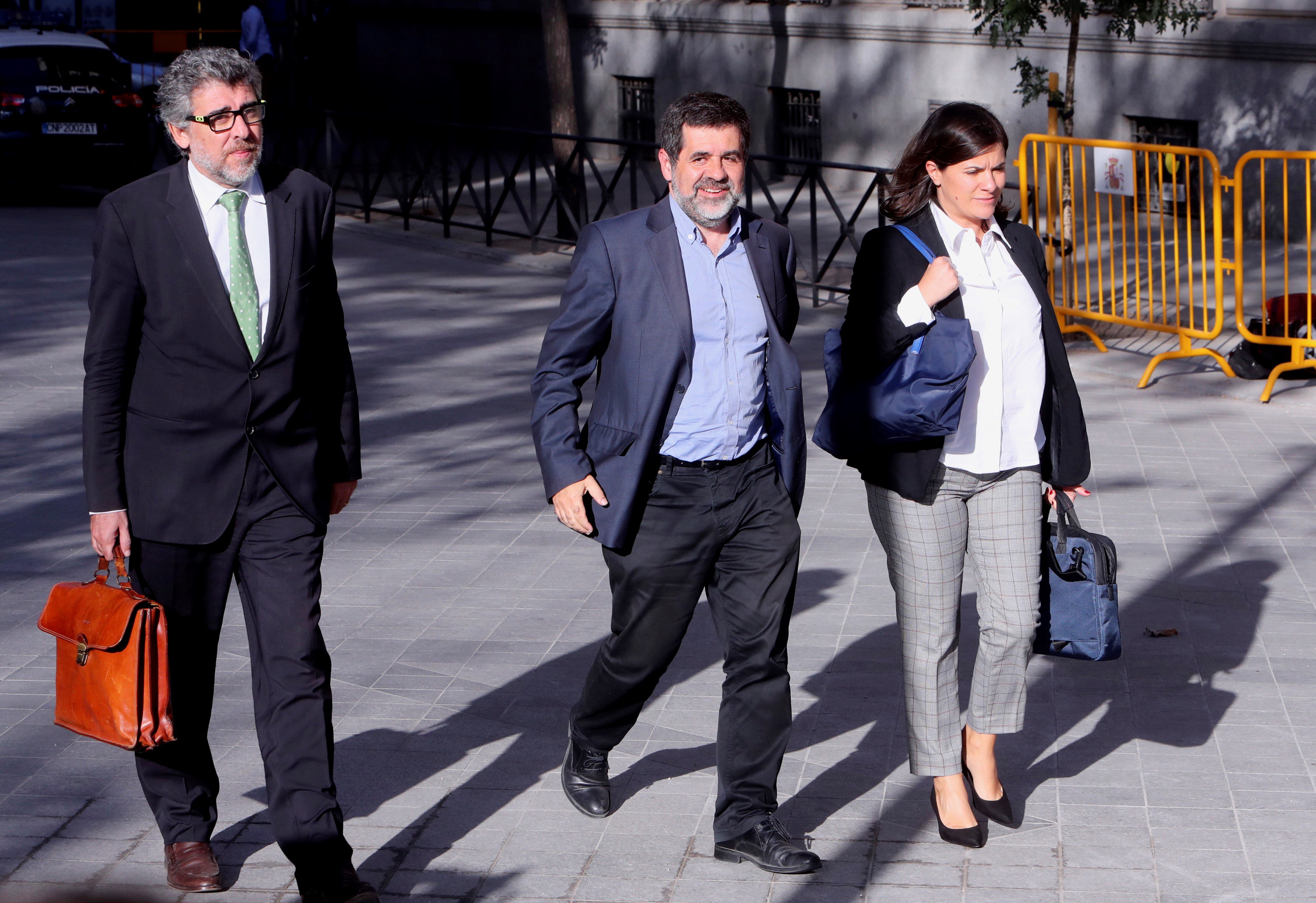As Jordi Sànchez's lawyers announced yesterday, the presidential candidate's stategy has changed, and today they've presented an appeal to the Spanish Supreme Court for his release. This is a necessary pre-requisite to take the case to the European Court of Human Rights in Strasbourg.
The presidential investiture debate is postponed awaiting the European court's decision, as mentioned by the appeal that Jordi Pina, Sànchez's lawyer, presented today: "it is doubtlessly clear that the Parliament's speaker cannot wait indefinitely to find out whether candidate Jordi Sànchez will be able to go to the plenary session or not, especially taking into account that, in a certainly debatable way, the Constitutional Court has (as an interim measure) interpreted that the investiture requires the candidate's presence". As such, they call for a decision to be taken as quickly as possible.
The emergency appeal is based on: "the violation of [Jordi Sànchez's] fundamental rights, of his voters' fundamental rights and grave harm to the fundamental values of the constitutional system, like democracy, political pluralism, the political autonomy of Catalonia and the separation of powers, motivated by the refusal of the requested permission".
According to the defence, up to three articles of fundamental rights have been violated: article 23 of the Spanish Constitution, article 3 of Protocol 1 to the European Convention for the Protection of Human Rights and article 25 of the International Covenant on Civil and Political Rights. These recognise the rights to political participation and access to public office. Pina remarks that such violation of rights doesn't only affect the suspect, but also all citizens of Catalonia: "the wishes of the more than two million people who, in the election on 21st December 2017, voted for political parties which could one day support my client's candidacy are frustrated".
Preventing Jordi Sànchez from attending his investiture, moreover, according to the appeal, means "a serious restriction of democracy as a superior value of the Spanish constitutional system". The text also questions Pablo Llarena's arguments disallowing Sànchez special permission to attend the investiture, using what the lawyer describes as "unprecedented", purely political ideas.

